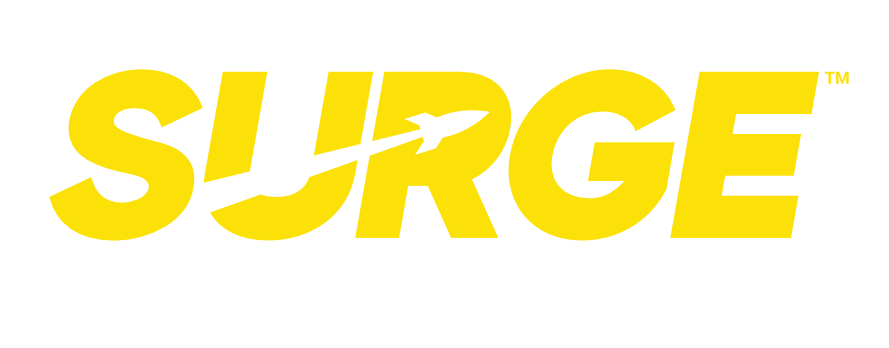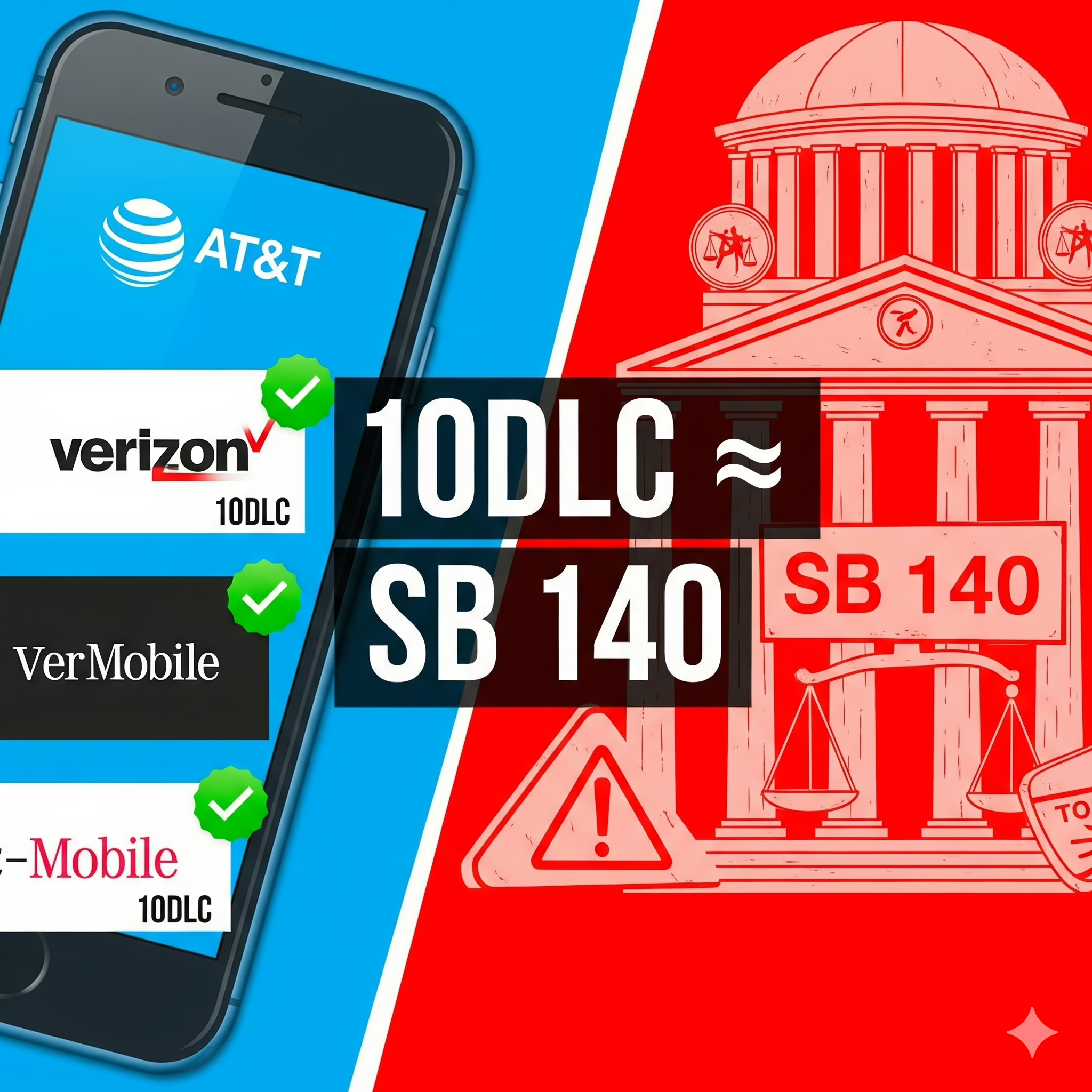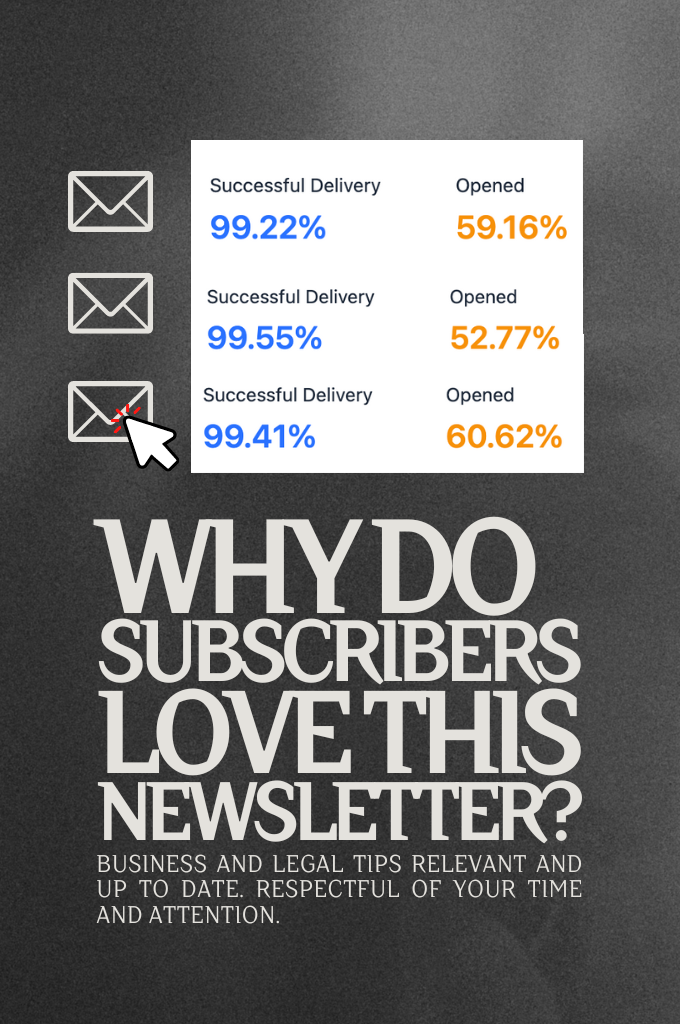Texas SB 140 and 10DLC Compliance
I’m 10DLC Registered. Am I Compliant With the New Texas Texting Law?
If you’re in the world of SMS marketing, you’ve spent the last couple of years getting up to speed on A2P 10DLC registration. You’ve registered your brand and campaigns with The Campaign Registry (TCR) to ensure your messages get delivered by mobile carriers. So, with the new Texas text message law (SB 140) on the horizon, you might be asking: “I’m already 10DLC compliant. Am I good to go?”
The short, simple, and critical answer is: No.
Complying with 10DLC and complying with Texas SB 140 are two completely different things. Confusing them could lead to massive fines and lawsuits. Let’s break down the difference.
This will definitely affect small businesses, so here’s a guide on staying compliant.
What is 10DLC? A Carrier Requirement
10DLC (10-Digit Long Code) is a system created by mobile carriers like AT&T, Verizon, and T-Mobile.
- Its Purpose: To reduce spam and improve deliverability for Application-to-Person (A2P) text messages. Carriers want to know who is sending messages on their networks.
- Who Governs It: The mobile carriers themselves, through a third-party entity called The Campaign Registry (TCR).
- What It Requires: You must register your business (your “Brand”) and your messaging use cases (your “Campaigns”).
- Consequences of Non-Compliance: Carriers will filter or block your messages. They simply won’t get delivered.
Think of 10DLC registration as your postage stamp. Without it, the post office (the carrier) won’t deliver your mail.
What is Texas SB 140? A State Law
Texas Senate Bill 140 is a state law passed by the Texas Legislature and signed by the Governor.
- Its Purpose: To protect consumers from unwanted or deceptive marketing communications.
- Who Governs It: The State of Texas, enforced by the Texas Attorney General and through private lawsuits in the courts.
- What It Requires: For most businesses sending marketing texts, it requires registering as a “telephone solicitor” with the Texas Secretary of State, paying a $200 annual fee, and posting a $10,000 security bond.
- Consequences of Non-Compliance: Legal and financial penalties, including fines up to $5,000 per text, treble damages, and consumer-led class-action lawsuits.
Think of SB 140 as the law governing what you can send in the mail and how you must do it.
Comparison: 10DLC vs. Texas SB 140
| Feature | A2P 10DLC Registration | Texas SB 140 |
| Type | Industry/Carrier Requirement | State Law |
| Goal | Message Deliverability & Spam Reduction | Consumer Protection |
| Authority | Mobile Carriers (AT&T, Verizon, etc.) | Texas Legislature & Courts |
| Mandate | Register Brand & Campaigns with TCR | Register as a Solicitor with the State |
| Penalty | Messages Blocked/Filtered | Fines, Lawsuits, Damages |
The Cost of Non-Compliance
One of the biggest misconceptions is that 10DLC compliance shields you from other risks. It doesn’t. Even if your messages are delivered, you could face staggering liability if you haven’t complied with SB 140.
Example: A campaign of 3,000 non-compliant texts to Texas residents could create $15 million in liability at $5,000 per violation, not counting treble damages or attorney’s fees. Even a smaller campaign of 500 texts could result in $2.5 million in penalties.
This is why both carrier rules and state law compliance are essential.
Are you an agency providing services to your clients? Here’s the guide for marketing firms.
The Bottom Line
You must comply with both. 10DLC registration ensures your texts get delivered. Complying with Texas SB 140 ensures you don’t get sued when they do. They are separate requirements, and one does not satisfy the other. This new Texas law adds a distinct layer of compliance on top of the federal TCPA and carrier 10DLC rules you already follow.
Now that you understand how 10DLC differs from SB 140, get the full details in our comprehensive pillar post.
From Carrier Rules to State Law, We’ve Got Your Compliance Covered
You’ve done the work to get 10DLC registered. Don’t let that effort go to waste by getting tripped up by a new state law.
- Flat-Fee Texas SB 140 Compliance Review ($1,500): Designed for businesses that already understand carrier rules but need expert guidance on this new legal layer.
- Momentum Membership ($95/month): Unlimited business and legal Q&A by email, perfect for ongoing support.
Book a free appointment today to ensure you’re fully compliant—from carrier to courthouse.


